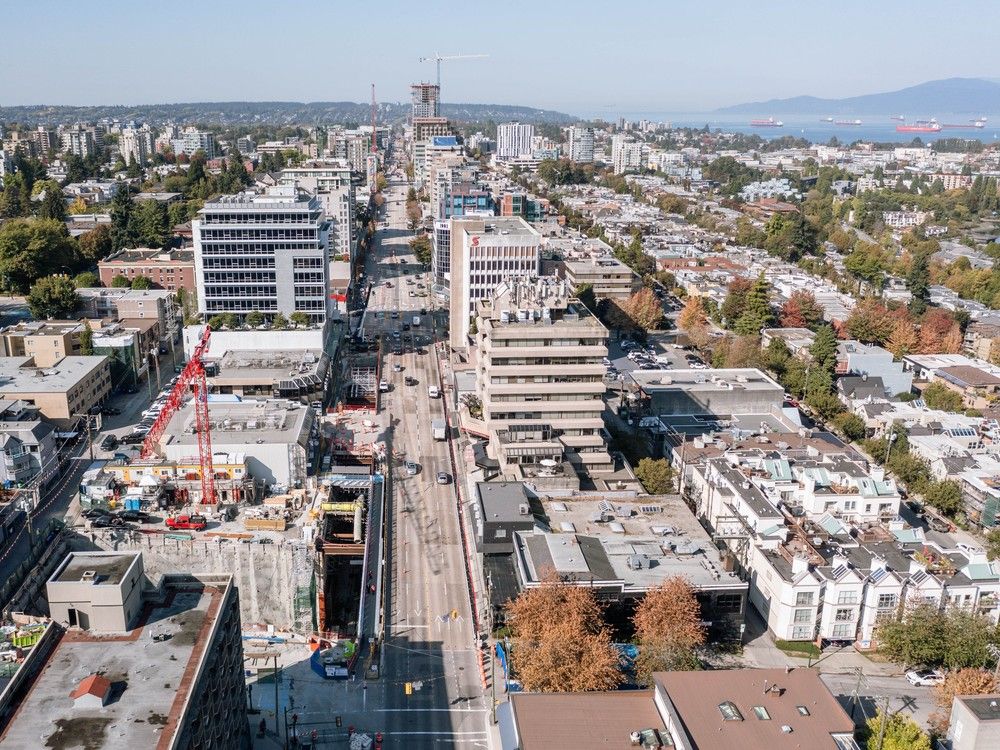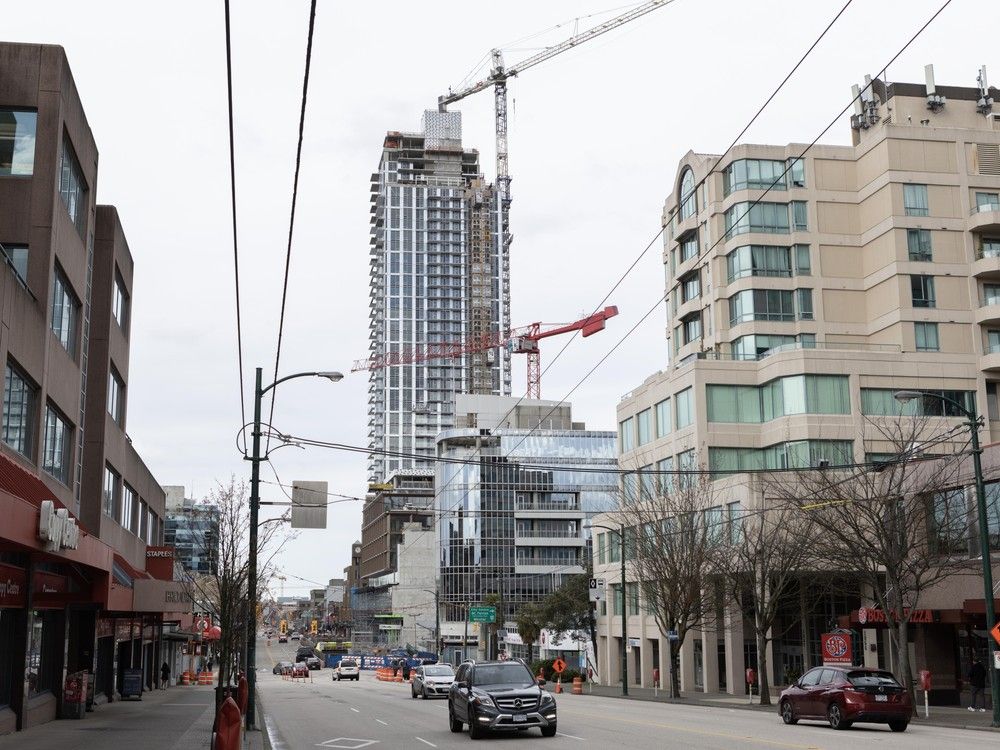
Vancouver city council approved sweeping zoning changes Tuesday aimed at speeding up the development of thousands of parcels of land in the Broadway and Cambie corridors.
The decision will not increase the size or number of buildings allowed in these neighbourhoods, both of which went through extensive planning processes in recent years to boost density along rapid transit lines. Instead, these reforms aim to simplify development by eliminating the need for property owners to apply for rezoning on a project-by-project basis in many cases, instead allowing them to proceed directly to a development permit application.
This could shorten the development process by a year or more, council heard Tuesday.
The changes will apply to 4,292 parcels of land along the Broadway subway line, currently under construction and expected to start running in 2027, and the Cambie corridor, where the Canada Line opened in 2009.
The size of this city-initiated rezoning is “significant” on its own, Vancouver chief planner Josh White told council Tuesday. “But I think, more importantly, it is emblematic of a sea change in how our planning system works. Less site-by-site, customized rezoning. And more standardization and predictability.
“For the applicant, the fastest rezoning is one that’s not needed at all.”
This proposal faced some fierce opposition. More than 70 people signed up to speak to council about the changes at a public hearing last month, and while some were in support, many were vehemently opposed. Council received hundreds of written submissions about the changes, with more than three-quarters opposed — including some from former senior Vancouver planning staff. A recent Vancouver Sun column by lawyer Mike Mangan argued against removing the opportunity for local residents to address council at public hearings about individual buildings proposed for their neighbourhoods.
But, in the end, the final decision didn’t prove particularly controversial at Tuesday’s council meeting, and the changes were unanimously approved. (COPE Coun. Sean Orr abstained, which counts as a vote in support.)
Within minutes of council’s decision, the local political party TEAM for a Livable Vancouver issued a news release saying its members were “appalled” that the ABC-majority council, with support of Green and OneCity councillors, “doubled down on a failed model” that they predicted would make Vancouver less livable and more expensive.
TEAM’s statement pledged that if the party forms a majority on council after next October’s municipal election, it will “rescind this sweeping proposal to reshape the city.”
In cases where a site-specific rezoning application is necessary, there would be a simplified rezoning process, the report recommends.

The proposed changes include adding three zoning categories, for lowrise, midrise and highrise buildings in different locations. Lowrise is defined as apartment buildings of up to six or eight storeys of social housing; midrise would be towers up to 12 storeys; and highrises would be up to 22 storeys. Builders looking to build to the maximum heights would be required to include a non-market housing component.
Speaking after Tuesday’s meeting, ABC Vancouver Mayor Ken Sim said the decision was part of his party’s efforts to “speed up permitting processes and make it easier for homebuilders to build homes in the right areas.”
“What we do in that chamber is we look at what makes sense for the city over the next 30 years, and if it makes sense, we’re going to do it,” Sim said. “It just makes sense that there’s going to be housing built along the subway line that’s being built along Broadway … So we’re making sure that we’re not the bottleneck, that we support these homebuilders so they can get on and have an easier time building homes for the people that want to live and work in the city of Vancouver.”
With files from Joanne Lee-Young